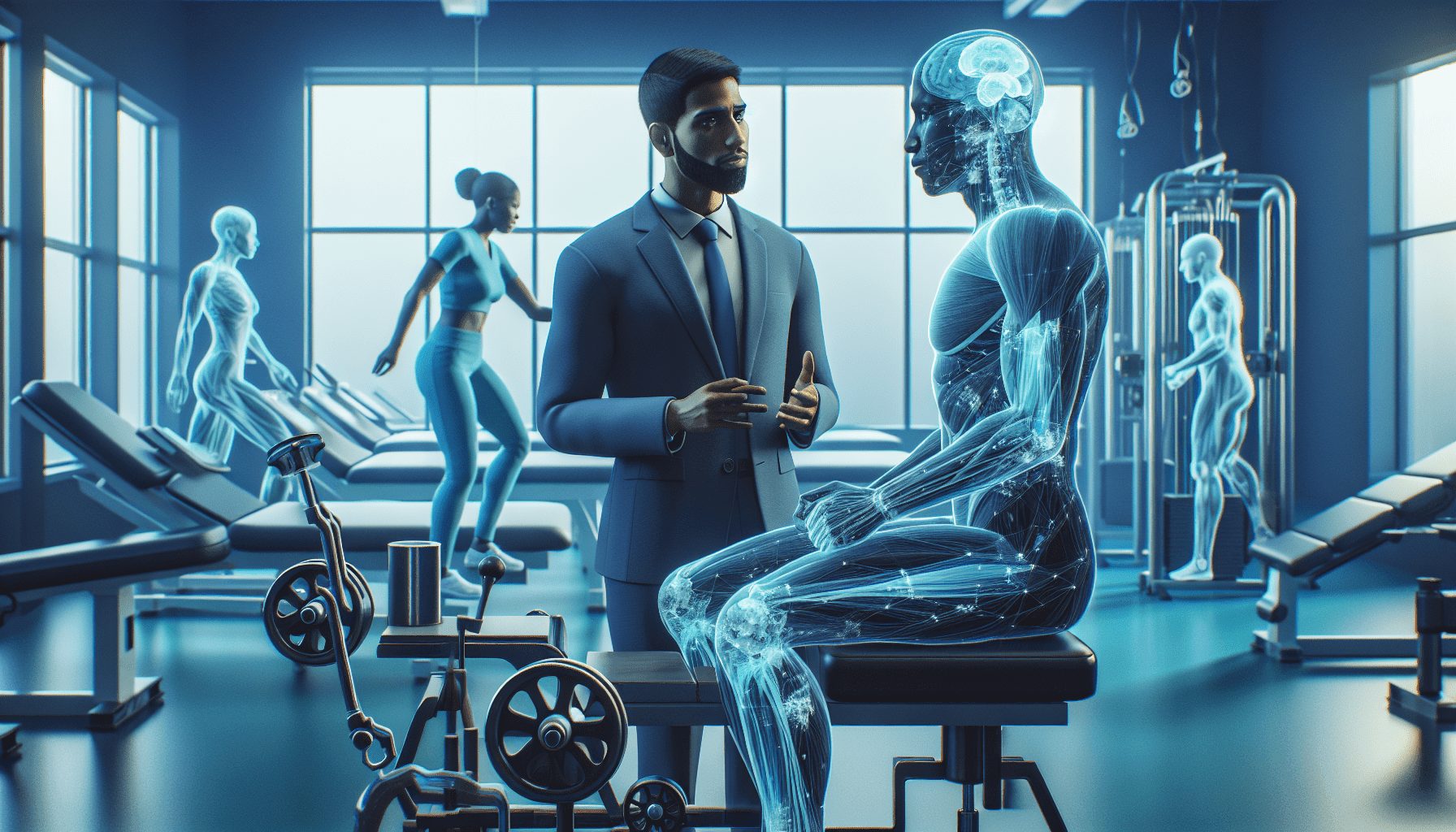Advanced AI Recruiter: Streamlining Recruitment with AI Recruiting Software
Overview of AI Recruiting Software
In today’s competitive job market, finding and attracting top talent can be a daunting task. This is where AI recruiting software comes into play, revolutionizing the way companies approach recruitment. By leveraging the power of artificial intelligence (AI), these advanced tools streamline the hiring process, improve candidate screening, enhance the candidate experience, and reduce bias in hiring decisions.
AI recruiting software is designed to automate and optimize various aspects of the recruitment process, from job posting to candidate selection. It leverages machine learning algorithms and natural language processing to analyze vast amounts of data, making it easier for recruiters to identify the most qualified candidates for a position.
One of the key benefits of AI recruiting software is its ability to streamline the entire recruitment process. With automated job posting, recruiters can reach a wider pool of candidates across multiple platforms, increasing the chances of finding the perfect fit for a role. Resume parsing and analysis features enable recruiters to quickly sift through resumes, identifying key skills and qualifications without spending hours manually reviewing each application.
Another significant advantage of AI recruiting software is its ability to improve candidate screening. By using sophisticated algorithms, these tools can analyze resumes, cover letters, and other application documents to identify the most relevant candidates for a position. This saves recruiters valuable time and ensures that only the most qualified individuals move forward in the hiring process.
Furthermore, AI recruiting software plays a crucial role in enhancing the candidate experience. With the help of chatbots and virtual assistants, candidates can receive instant responses to their queries, schedule interviews, and even receive personalized feedback after an application. This level of engagement and responsiveness not only improves the candidate experience but also helps companies attract and retain top talent.
Moreover, AI recruiting software addresses the issue of bias in hiring decisions. By removing human bias from the equation, these tools ensure that candidates are evaluated solely based on their qualifications and suitability for a role. This promotes diversity and inclusion within the workforce, leading to better business outcomes and a more equitable hiring process.
In the next sections, we will delve deeper into the key features of AI recruiting software, explore case studies of companies that have successfully implemented this technology, and discuss important considerations when implementing these tools. We will also explore the future of AI in recruitment and the potential challenges and opportunities that lie ahead.
Stay tuned for the following sections where we will explore the benefits, key features, case studies, considerations, and future of AI in recruitment.
Benefits of AI Recruiting Software
The advent of AI recruiting software has revolutionized the recruitment process, offering a multitude of benefits to employers and candidates alike. From streamlining the recruitment process to reducing bias in hiring, these intelligent tools have become indispensable in the modern hiring landscape.
Streamlining the Recruitment Process
Traditional recruitment methods often involve a manual and time-consuming process of sifting through countless resumes and conducting numerous interviews. However, with AI recruiting software, this arduous task becomes a breeze. By automating job posting, resume parsing, and candidate ranking, companies can significantly reduce the time and effort required to find the right talent.
AI recruiting software uses advanced algorithms and machine learning capabilities to analyze resumes, identify relevant skills and qualifications, and match them with job requirements. This not only expedites the screening process but also ensures that only the most qualified candidates are considered for the position. By streamlining the recruitment process, companies can save valuable time and resources, allowing them to focus on other strategic activities.
Improving Candidate Screening
One of the most significant challenges in recruitment is identifying the most suitable candidates from a large pool of applicants. Traditional screening methods often rely on manual review, which can be subjective and prone to human bias. However, AI recruiting software overcomes this limitation by leveraging data-driven insights and predictive analytics.
With the help of AI algorithms, recruiters can objectively evaluate candidates based on their qualifications, experience, and job fit. These tools can analyze vast amounts of data in a matter of seconds, providing a comprehensive assessment of each candidate’s suitability for the role. By removing human bias from the screening process, companies can ensure fair and unbiased evaluations, leading to better hiring decisions.
Enhancing Candidate Experience
In today’s competitive job market, providing a positive candidate experience is crucial for attracting and retaining top talent. AI recruiting software plays a vital role in enhancing the overall candidate experience by streamlining the application process and providing timely feedback.
AI-powered chatbots and virtual assistants can engage with candidates in real-time, answering their questions, providing updates on their application status, and guiding them through the recruitment process. These intelligent assistants offer a personalized and interactive experience, making candidates feel valued and engaged. By automating routine tasks and providing prompt responses, companies can create a seamless and efficient experience for candidates, leaving a lasting positive impression.
Reducing Bias in Hiring
Unconscious bias has long been a challenge in recruitment, leading to a lack of diversity and fairness in hiring. However, AI recruiting software has the potential to address this issue by removing bias from the decision-making process.
These tools are designed to evaluate candidates based on objective criteria, such as qualifications and skills, rather than subjective factors like gender, race, or age. By relying on data-driven insights, AI recruiting software ensures that every candidate is evaluated fairly and on an equal footing. This not only promotes diversity and inclusion but also helps companies build a more robust and talented workforce.
In conclusion, AI recruiting software offers a plethora of benefits that streamline the recruitment process, improve candidate screening, enhance the candidate experience, and reduce bias in hiring. By leveraging the power of artificial intelligence, companies can optimize their hiring practices and make more informed decisions, ultimately leading to better outcomes for both employers and candidates.
*[AI recruiter]: https://www.engagedheadhunters.com/ai-recruiter
*[AI recruiting software]: https://www.engagedheadhunters.com/ai-recruiting-software
*[AI recruiting tools]: https://www.engagedheadhunters.com/ai-recruiting-tools
Key Features of AI Recruiting Software
Automated Job Posting
One of the key features of AI recruiting software is its ability to automate the job posting process. Instead of manually posting job openings on various job boards and career websites, AI recruiting software can do it all for you in a fraction of the time. By simply inputting the job description and specifications, the software can intelligently distribute the job posting to relevant platforms, reaching a wider pool of potential candidates. This feature not only saves time and effort but also ensures that the job openings are seen by the right candidates, increasing the chances of finding the perfect fit for the role.
Resume Parsing and Analysis
AI recruiting software also offers the powerful capability of resume parsing and analysis. This feature allows the software to extract relevant information from resumes and analyze them based on predetermined criteria. By utilizing natural language processing and machine learning algorithms, the software can quickly scan through hundreds or even thousands of resumes, identifying key skills, qualifications, and experiences. This automated process streamlines the initial screening phase, enabling recruiters to focus their attention on the most promising candidates. Additionally, the software can provide insights and analytics on the resumes, helping recruiters make informed decisions.
Chatbots and Virtual Assistants
Another valuable feature of AI recruiting software is the integration of chatbots and virtual assistants. These intelligent conversational agents can interact with candidates in real-time, providing instant responses to inquiries and guiding them through the application process. Chatbots can handle a wide range of tasks, such as answering frequently asked questions, scheduling interviews, and even conducting initial screenings. By leveraging natural language processing and machine learning, chatbots can simulate human-like conversations, creating a seamless and engaging experience for candidates. This feature not only enhances the candidate experience but also frees up recruiters’ time, allowing them to focus on more strategic aspects of the recruitment process.
Automated Interview Scheduling
Efficiently scheduling interviews can be a time-consuming task for recruiters. However, with AI recruiting software, this process can be automated, saving valuable time and effort. The software can analyze the availability of both the candidate and the interviewer, taking into account multiple calendars and time zones. By considering various factors, such as preferred interview times and duration, the software can suggest optimal slots for interviews. With just a few clicks, recruiters can schedule interviews seamlessly, eliminating the back-and-forth communication typically involved in this process. This feature ensures a smooth and efficient interview scheduling experience for both candidates and recruiters.
Candidate Ranking and Scoring
When faced with a large pool of candidates, it can be challenging to identify the most qualified individuals. AI recruiting software addresses this challenge by offering candidate ranking and scoring capabilities. By analyzing the information extracted from resumes, as well as additional data points, the software can assign scores and rankings to candidates based on their suitability for the role. These scores can be derived from various factors, such as skills, experience, education, and even cultural fit. Recruiters can then easily access and compare these rankings, making it easier to shortlist candidates for further evaluation. This feature eliminates bias and subjectivity in the selection process, ensuring a fair and data-driven approach to candidate evaluation.
With these key features, AI recruiting software revolutionizes the recruitment process, making it more efficient, accurate, and candidate-centric. By automating tasks, analyzing resumes, providing real-time assistance, simplifying interview scheduling, and facilitating candidate ranking, this technology empowers recruiters to make better-informed decisions and find the best talent for their organizations.
Case Studies: Companies Using AI Recruiting Software
Company A: Increased Efficiency and Diverse Hiring
In the world of recruitment, efficiency and diversity are two crucial factors for success. Company A, a leading tech firm, recognized the need to streamline their hiring process and enhance diversity in their workforce. They turned to AI recruiting software to achieve these goals.
By implementing AI recruiting tools, Company A experienced a significant increase in efficiency throughout their recruitment process. The software automated various tasks such as job posting, resume parsing and analysis, and interview scheduling. This automation not only saved time for the HR team but also ensured a consistent and standardized approach to candidate evaluation.
Moreover, the AI software excelled in improving diversity within the company. Traditional recruitment methods often inadvertently perpetuate bias, resulting in a lack of diversity in the workforce. However, with the help of AI, Company A was able to mitigate unconscious bias and introduce more diversity into their candidate pool. The software employed advanced algorithms to identify qualified candidates from a wide range of backgrounds, ensuring a fair and inclusive hiring process.
As a result of implementing AI recruiting software, Company A witnessed a remarkable increase in both the efficiency of their recruitment process and the diversity of their hires. They were able to attract a wider pool of talent, resulting in a more innovative and dynamic workforce.
Company B: Improved Candidate Experience and Quality of Hires
For Company B, creating a positive candidate experience and identifying top-quality hires were critical objectives. They recognized that a seamless and interactive recruitment process is crucial for attracting and retaining top talent. To achieve this, they adopted AI recruiting software.
The introduction of chatbots and virtual assistants transformed the way Company B interacted with candidates. These intelligent AI tools provided instant responses to candidate queries, ensuring a prompt and personalized experience. Candidates could obtain information about the company, the position, and the recruitment process at any time, improving their engagement and satisfaction.
Furthermore, the AI software enabled Company B to enhance the quality of their hires. Through candidate ranking and scoring features, the software evaluated candidates based on predetermined criteria and identified the most promising individuals. By leveraging AI’s ability to analyze vast amounts of data, Company B was able to make more informed decisions and select candidates who exhibited the desired skills and cultural fit.
The implementation of AI recruiting software led to a significant improvement in both candidate experience and the quality of hires for Company B. The personalized and efficient recruitment process not only attracted top talent but also ensured a seamless transition from candidate to employee.
Company C: Reduced Time-to-Fill and Cost-per-Hire
In the competitive job market, time is of the essence. Company C, a rapidly growing startup, faced the challenge of filling open positions quickly and cost-effectively. They turned to AI recruiting software to address these challenges and optimize their recruitment efforts.
One of the key benefits Company C experienced was a significant reduction in time-to-fill. The AI software automated various time-consuming tasks such as resume screening and candidate shortlisting. By leveraging machine learning algorithms, the software quickly identified the most qualified candidates, enabling the HR team to focus their efforts on the most promising individuals. This streamlined approach resulted in a faster hiring process, allowing Company C to secure top talent before their competitors.
Moreover, the implementation of AI recruiting software led to a substantial reduction in the cost-per-hire for Company C. By automating repetitive tasks and eliminating the need for manual intervention, the software reduced the overall recruitment expenses. Additionally, the software enabled the HR team to make data-driven decisions, minimizing the risk of costly hiring mistakes.
Overall, the adoption of AI recruiting software proved to be a game-changer for Company C. The reduced time-to-fill and cost-per-hire allowed them to stay ahead of the competition and build a talented team without breaking the bank.
These case studies demonstrate the remarkable impact of AI recruiting software on companies’ recruitment processes. From increased efficiency and diverse hiring to improved candidate experience and reduced time-to-fill, the benefits are undeniable. As more organizations embrace the power of AI, the future of recruitment is set to be revolutionized.
Considerations when Implementing AI Recruiting Software
Implementing AI recruiting software can revolutionize the way companies approach their recruitment processes. However, there are several important considerations that organizations need to keep in mind when adopting this technology. From data privacy and security to ethical use of AI, these factors play a crucial role in ensuring a successful integration. Let’s explore these considerations in detail:
Data Privacy and Security
One of the primary concerns when implementing AI recruiting software is ensuring the privacy and security of candidate data. As the software relies on collecting and analyzing vast amounts of personal information, organizations must prioritize data protection. This includes adhering to relevant privacy regulations, such as the General Data Protection Regulation (GDPR) in Europe, and implementing robust security measures to prevent unauthorized access or data breaches. By taking these precautions, companies can build trust with candidates and safeguard their sensitive information.
Training and Integration
To effectively implement AI recruiting software, organizations need to invest in proper training and integration processes. HR teams and hiring managers should receive comprehensive training on how to use the software and interpret its results accurately. Moreover, the software needs to seamlessly integrate with existing HR systems and processes to ensure a smooth transition. This integration may involve syncing with applicant tracking systems, HR databases, and other relevant tools. By providing adequate training and ensuring seamless integration, companies can maximize the benefits of AI in recruitment.
Ethical Use of AI in Recruitment
Ethics play a crucial role when it comes to utilizing AI in recruitment. Companies must ensure that the software is used in a fair and unbiased manner, without discriminating against any candidates based on their gender, race, or other protected characteristics. It is essential to regularly monitor the algorithms and models used by the AI software to detect and rectify any biases that may arise. By promoting ethical use of AI, organizations can foster inclusivity and diversity in their hiring processes.
Balancing Automation with Human Touch
While AI recruiting software offers numerous benefits, it is important to strike a balance between automation and the human touch. While automation can streamline processes and save time, it should not completely replace human involvement. Maintaining a human element in recruitment, such as personalized communication or face-to-face interviews, helps candidates feel valued and understood. Organizations should leverage the insights provided by the software while still allowing recruiters and hiring managers to make informed decisions based on their expertise and intuition.
In summary, implementing AI recruiting software requires organizations to prioritize data privacy and security, provide proper training and integration, promote ethical use of AI, and strike a balance between automation and human involvement. By considering these factors, companies can harness the power of AI to enhance their recruitment processes and attract top talent.
Read more about the latest advancements in AI recruiting software here.
Future of AI in Recruitment
As technology continues to advance at an unprecedented pace, the future of AI in recruitment holds immense potential. With each passing day, AI technology is becoming more sophisticated, offering new opportunities and challenges for the recruitment industry. In this section, we will explore the advancements in AI technology and the potential challenges and opportunities that lie ahead.
Advancements in AI Technology
AI technology is constantly evolving, and its impact on the recruitment process is no exception. As AI continues to advance, it is expected to revolutionize various aspects of recruitment, making the process more efficient, accurate, and streamlined.
One major advancement in AI technology is the development of AI-powered candidate sourcing tools. These tools leverage machine learning algorithms to scan and analyze vast amounts of data from multiple sources, such as social media platforms, professional networks, and job boards. By doing so, they can identify and attract top talent that aligns with the specific requirements of a job posting. AI-based candidate sourcing tools not only save recruiters valuable time and effort but also enable them to reach a broader pool of candidates that they may have otherwise missed.
Another significant advancement is in the area of AI screening tools. Traditional screening methods often involve manual resume reviews, which can be time-consuming and prone to human bias. AI screening tools, on the other hand, use natural language processing and machine learning algorithms to analyze resumes and identify the most qualified candidates. These tools can quickly and accurately assess a candidate’s skills, qualifications, and experience, allowing recruiters to make more informed decisions and focus their attention on the candidates who are the best fit for a role.
Furthermore, AI is playing a crucial role in automating the interview process. AI-powered chatbots and virtual assistants can conduct initial interviews, asking candidates predefined questions and evaluating their responses. These virtual interviewers can provide a consistent and unbiased experience for all candidates, while also saving time and resources for recruiters. Additionally, AI technology can analyze interview data to provide insights and feedback to improve the overall interview process.
Potential Challenges and Opportunities
While the future of AI in recruitment is promising, it also presents some challenges and opportunities that need to be carefully considered.
One of the main challenges is ensuring ethical use of AI in recruitment. As AI algorithms become more complex and powerful, there is a risk of perpetuating biases and discrimination. It is crucial for organizations to develop and implement ethical guidelines to ensure fairness and prevent discrimination in the recruitment process. Additionally, transparency and explainability of AI algorithms are essential to maintain trust and accountability.
Another challenge is balancing automation with the human touch. While AI can automate many aspects of recruitment, it is essential to strike the right balance between automation and human interaction. Candidates often value personal connections and human empathy during the recruitment process. Therefore, organizations need to find ways to incorporate AI technology without losing the human touch that candidates seek.
Despite these challenges, the future of AI in recruitment offers numerous opportunities. AI-powered tools can help organizations reduce time-to-fill positions and lower the cost-per-hire by automating repetitive tasks and improving efficiency. Moreover, AI technology can assist in diversifying hiring practices by reducing unconscious bias and widening the candidate pool. By leveraging AI in recruitment, organizations can unlock new possibilities and gain a competitive edge in attracting top talent.
In conclusion, the future of AI in recruitment is filled with exciting advancements and opportunities. As AI technology continues to evolve, it will undoubtedly transform the way organizations source, screen, and hire candidates. By embracing these advancements and addressing the challenges, organizations can harness the power of AI to improve the recruitment process and make more informed hiring decisions.
Stay tuned for the concluding section of this article, where we will summarize the key points discussed and provide a glimpse into the potential future trends of AI in recruitment.
Conclusion
In conclusion, AI recruiting software has revolutionized the recruitment industry by introducing advanced technology and automation into the hiring process. The benefits of using AI in recruiting are numerous and impactful, ranging from streamlining the recruitment process to reducing bias in hiring.
One of the key advantages of AI recruiting software is its ability to streamline the recruitment process. With automated job posting, resume parsing and analysis, and automated interview scheduling, recruiters can save valuable time and effort. This allows them to focus on more strategic tasks such as building relationships with candidates and conducting in-depth interviews. The efficiency and speed brought about by AI tools can significantly enhance a company’s ability to attract and hire top talent.
Furthermore, AI recruiting software greatly improves candidate screening. By utilizing advanced algorithms and machine learning, these tools can analyze resumes and applications with a high level of accuracy, identifying the most suitable candidates for a given role. This not only saves recruiters time but also ensures that qualified candidates are not overlooked. Additionally, AI tools can help reduce unconscious bias in the screening process, leading to a more diverse and inclusive hiring process.
Another advantage of AI recruiting software is its ability to enhance the candidate experience. Through the use of chatbots and virtual assistants, candidates can receive instant responses to their inquiries, ensuring a seamless and efficient communication process. Additionally, AI tools can provide personalized recommendations to candidates based on their skills and preferences, helping them find the best-fit opportunities. By improving the candidate experience, companies can attract top talent and build a positive employer brand.
Moreover, AI recruiting software plays a crucial role in reducing bias in hiring. Traditional recruitment methods are often susceptible to unconscious bias, which can result in unfair and discriminatory hiring practices. AI tools, on the other hand, rely on data-driven algorithms that are designed to be objective and unbiased. By removing human bias from the screening and selection process, companies can ensure a fair and equitable hiring process, promoting diversity and inclusivity within their workforce.
As we have explored in this article, AI recruiting software offers a range of key features that contribute to its effectiveness. From automated job posting to resume parsing and analysis, chatbots and virtual assistants, automated interview scheduling, and candidate ranking and scoring, these features are designed to streamline the recruitment process and improve the quality of hires.
Several companies have already leveraged the power of AI recruiting software and experienced significant benefits. Company A, for example, increased efficiency and achieved a more diverse hiring pool, while Company B improved candidate experience and the quality of their hires. Company C, on the other hand, reduced time-to-fill and cost-per-hire, demonstrating the tangible impact of AI recruiting software on recruitment outcomes.
However, it’s important to consider certain factors when implementing AI recruiting software. Data privacy and security should be a top priority, ensuring that candidate information is protected and handled responsibly. Training and integration of AI tools within existing processes and systems is also crucial to maximize their effectiveness. Additionally, ethical use of AI in recruitment should be emphasized, ensuring that AI tools are used to augment human judgment rather than replace it. Striking the right balance between automation and the human touch is key to maintaining a personalized and engaging candidate experience.
Looking to the future, AI technology will continue to advance, presenting both challenges and opportunities in recruitment. While there is potential for increased efficiency and improved hiring outcomes, there may also be concerns regarding the ethical implications of AI in recruitment. It is essential for recruiters and organizations to stay informed and adapt to these advancements, leveraging AI tools responsibly and ethically.
In conclusion, AI recruiting software has emerged as a game-changer in the recruitment industry. Its ability to streamline the recruitment process, improve candidate screening, enhance the candidate experience, and reduce bias in hiring makes it an invaluable tool for modern recruiters. By embracing AI recruiting software, companies can stay ahead of the competition and attract top talent in an increasingly competitive job market.
So, if you’re looking to optimize your recruitment process and make the most of AI technology, consider exploring the best AI recruiting software and AI recruiting tools available in the market. Engaged Headhunters, an AI recruitment agency, offers a range of cutting-edge AI HR software and is known for its expertise in leveraging AI in recruitment. Visit their website to learn more about the benefits of AI recruitment and how it can transform your hiring strategy.







